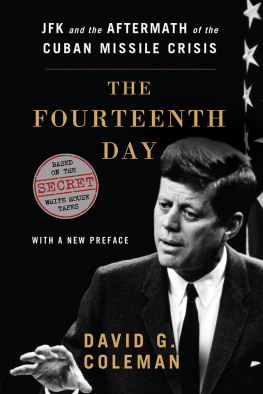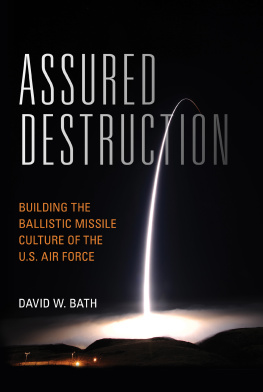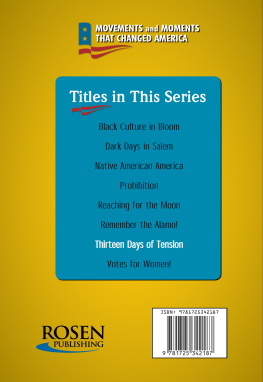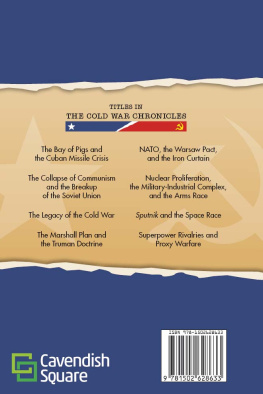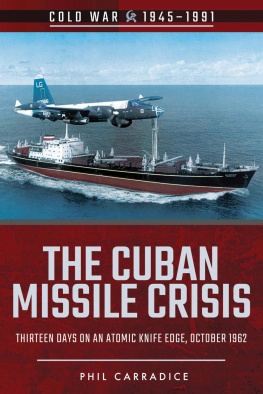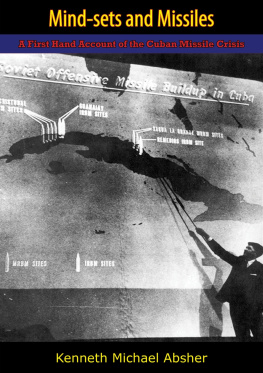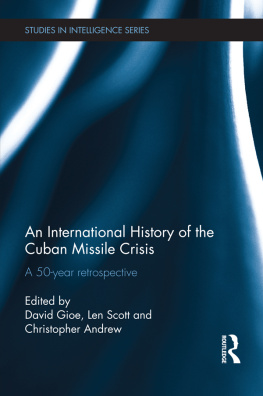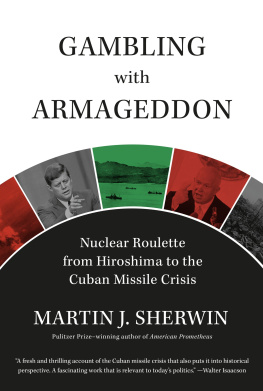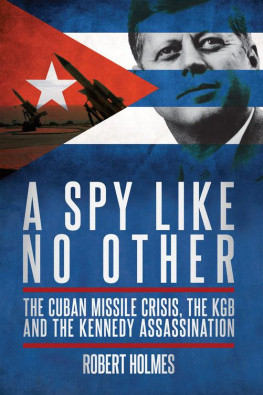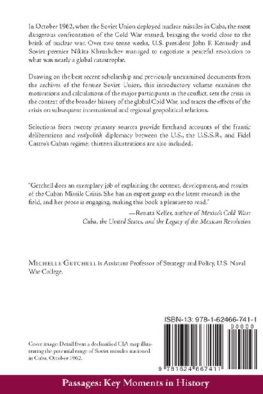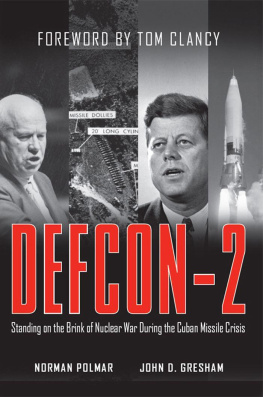Graham T. Allison - Essence of Decision: Explaining the Cuban Missile Crisis
Here you can read online Graham T. Allison - Essence of Decision: Explaining the Cuban Missile Crisis full text of the book (entire story) in english for free. Download pdf and epub, get meaning, cover and reviews about this ebook. year: 1999, publisher: Longman, genre: Politics. Description of the work, (preface) as well as reviews are available. Best literature library LitArk.com created for fans of good reading and offers a wide selection of genres:
Romance novel
Science fiction
Adventure
Detective
Science
History
Home and family
Prose
Art
Politics
Computer
Non-fiction
Religion
Business
Children
Humor
Choose a favorite category and find really read worthwhile books. Enjoy immersion in the world of imagination, feel the emotions of the characters or learn something new for yourself, make an fascinating discovery.

- Book:Essence of Decision: Explaining the Cuban Missile Crisis
- Author:
- Publisher:Longman
- Genre:
- Year:1999
- Rating:5 / 5
- Favourites:Add to favourites
- Your mark:
- 100
- 1
- 2
- 3
- 4
- 5
Essence of Decision: Explaining the Cuban Missile Crisis: summary, description and annotation
We offer to read an annotation, description, summary or preface (depends on what the author of the book "Essence of Decision: Explaining the Cuban Missile Crisis" wrote himself). If you haven't found the necessary information about the book — write in the comments, we will try to find it.
Essence of Decision: Explaining the Cuban Missile Crisis — read online for free the complete book (whole text) full work
Below is the text of the book, divided by pages. System saving the place of the last page read, allows you to conveniently read the book "Essence of Decision: Explaining the Cuban Missile Crisis" online for free, without having to search again every time where you left off. Put a bookmark, and you can go to the page where you finished reading at any time.
Font size:
Interval:
Bookmark:
The essence of ultimate decision remains impenetrable to the observeroften, indeed, to the decider himself.... There will always be the dark and tangled stretches in the decision-making processmysterious even to those who may be most intimately involved.
John Fitzgerald Kennedy
I have come across men of letters who have written history without taking part in public affairs, and politicians who have concerned themselves with producing events without thinking about them. I have observed that the first are always inclined to find general causes, whereas the second, living in the midst of disconnected daily facts, are prone to imagine that everything is attributable to particular incidents, and that the wires they pull are the same as those that move the world. It is to be presumed that both are equally deceived.
Alexis de Tocqueville
Explaining the Cuban Missile Crisis
Second Edition
Graham Allison
Harvard University
Philip Zelikow
University of Virginia

New York Reading, Massachusetts Menlo Park, California Harlow, England
Don Mills, Ontario Sydney Mexico City Madrid Amsterdam
Associate Editor: Jennie Errickson
Marketing Manager: Megan Galvin
Project Coordination and Text Design: Elm Street Publishing Services, Inc.
Cover Designer/Manager: Nancy Danahy
Cover Illustration: Nancy Danahy
Full Service Production Manager: Valerie Zaborski
Photo Researcher: Photosearch, Inc.
Senior Manufacturing Buyer: Hugh Crawford
Electronic Page Makeup: Elm Street Publishing Services, Inc.
Printer and Binder: R.R. Donnelley & Sons, Co.
Cover Printer: Phoenix Color Corp.
Library of Congress Cataloging-in-Publication Data
Allison, Graham T.
Essence of decision: explaining the Cuban Missile Crisis / Graham
T. Allison, Philip D. Zelikow.2nd ed.
p. cm.
Includes index.
ISBN 0-321-01349-2
1. Cuban Missile Crisis, 1962. I. Zelikow, Philip, 1954.
II. Title.
E841.A44 1999
973.923dc21
98-36413
CIP
Copyright 1999 by Addison-Wesley Educational Publishers Inc.
All rights reserved. No part of this publication may be reproduced, stored in a retrieval system, or transmitted, in any form or by any means, electronic, mechanical, photocopying, recording, or otherwise, without the prior written permission of the publisher. Printed in the United States.
Please visit our website at http://longman.awl.com
ISBN 0-321-01349-2
12345678910DOC01009998
To Elisabeth and Paige
The decision to revise a best-seller in political science that has been in print continuously for over a quarter century requires justification. First, the historical evidence about the Cuban missile crisis has grown dramatically, stimulated by a series of oral history conferences and declassification efforts and culminating in 19971998. With publication of heretofore classified documents in the relevant volumes of the Foreign Relations of the United States series published by the Department of State (which must be used in conjunction with the Berlin and arms control volumes for the Kennedy administration published earlier in the 1990s); exploration of central files from the Soviet government in Aleksandr Fursenko and Timothy Naftalis book, One Hell of a Gamble: Khrushchev, Castro, and Kennedy 1957-1964, and finally, transcription and publication of the secret tapes of the Kennedy Administrations deliberations during the crisis by Ernest May and Philip Zelikow in The Kennedy Tapes: Inside the White House During the Cuban Missile Crisis, the most important evidence about the crisis is now available This new evidence shows a number of explanations in the original edition to have been incorrect, and others insufficient. For the coauthors of this revised edition of Essence, the most pleasurable part of the endeavor has been to see how this new evidence glistens when examined through alternative conceptual lenses. This book is the first analytical synthesis of all that evidence. Students of this event will notice, perhaps with some surprise, that despite the many books written on the missile crisis, the explanations for key choices and events in the crisis deserve, and get, a fresh interpretation in this book.
Second, analytical and theoretical scholarship from which the core arguments in the original edition of Essence drew have advanced: in studies of international affairs; in the disciplines of political science, economics, sociology, social psychology, organization theory, and decision analysis; and in important new applied arenas including public policy and business. The first edition engaged central questions in each of these arenas and has subsequently been engaged by authors in each. Beneath these debates lies the fundamental question to which the original edition offered a provocative answer: How should citizens try to understand the actions of their government? Not surprisingly, the original statement of the argument became a lightning rod for wide-ranging criticism and debate, not only in political science but in many other fields. Some of the earliest critiques made good points that have stood the test of time. Though we believe the fundamental structure of the book was and is sound, we have listened to the critics and, thanks in part to their help, the basic explication of the theoretical models has been materially revised. We have also benefited from a generation of new scholarship (and a few fresh looks at some older works) and have attempted to clarify these fields of work and the models. While it is obviously not possible to take full account of all theoretical and analytical scholarship bearing on these arguments since the original edition, the earlier statement of the argument has been enriched and extended in several dimensions.
Third, managers in government, business, and the nonprofit sector have found the argument in the original edition more valuable than its author had anticipated. The book has been used in graduate schools of government and public policy, business, and other professional training programs where the objective is preparation for practice, rather than theory. At Harvards John F. Kennedy School of Government, it has served as a text in the political and institutional analysis curriculum for almost a quarter century. Philip Zelikow was drawn to the potential for revision during the five years that he chaired this core course. Use of more abstract concepts and propositions to provide perspectives and checklists for practitioners who must stretch beyond explanation to prescription constitutes an important extension of the work that deserves more focused attention.
Finally, the author of the first edition, Graham Allison, has of course learned a great deal from students, colleagues, and critics. Leading a large organization in the federal government, he had opportunities to apply the frameworks. But not until a partnership emerged with a (then) Harvard colleague trained as a historian who had served in the White House and then taught from Essence for a number of years, did the idea of attempting the challenge of revision become credible.
Readers of the original edition will find the central argument of this edition familiar. Though most of the text is new, the basic structure of the book remains unchanged. Three conceptual chapters each state and develop a conceptual model or lens through which analysts can explain, predict, and assess situations, especially in the arena of foreign affairs, but also across the wider array of governmental actions. Each of these chapters is followed by an account of the Cuban missile crisis that uses the conceptual lens from the prior chapter to analyze the crisis. In explaining the central puzzles of the Cuban missile crisis through each alternative lens, the authors have attempted to take account of all the evidence now available, including published material and unpublished primary sources.
Next pageFont size:
Interval:
Bookmark:
Similar books «Essence of Decision: Explaining the Cuban Missile Crisis»
Look at similar books to Essence of Decision: Explaining the Cuban Missile Crisis. We have selected literature similar in name and meaning in the hope of providing readers with more options to find new, interesting, not yet read works.
Discussion, reviews of the book Essence of Decision: Explaining the Cuban Missile Crisis and just readers' own opinions. Leave your comments, write what you think about the work, its meaning or the main characters. Specify what exactly you liked and what you didn't like, and why you think so.

